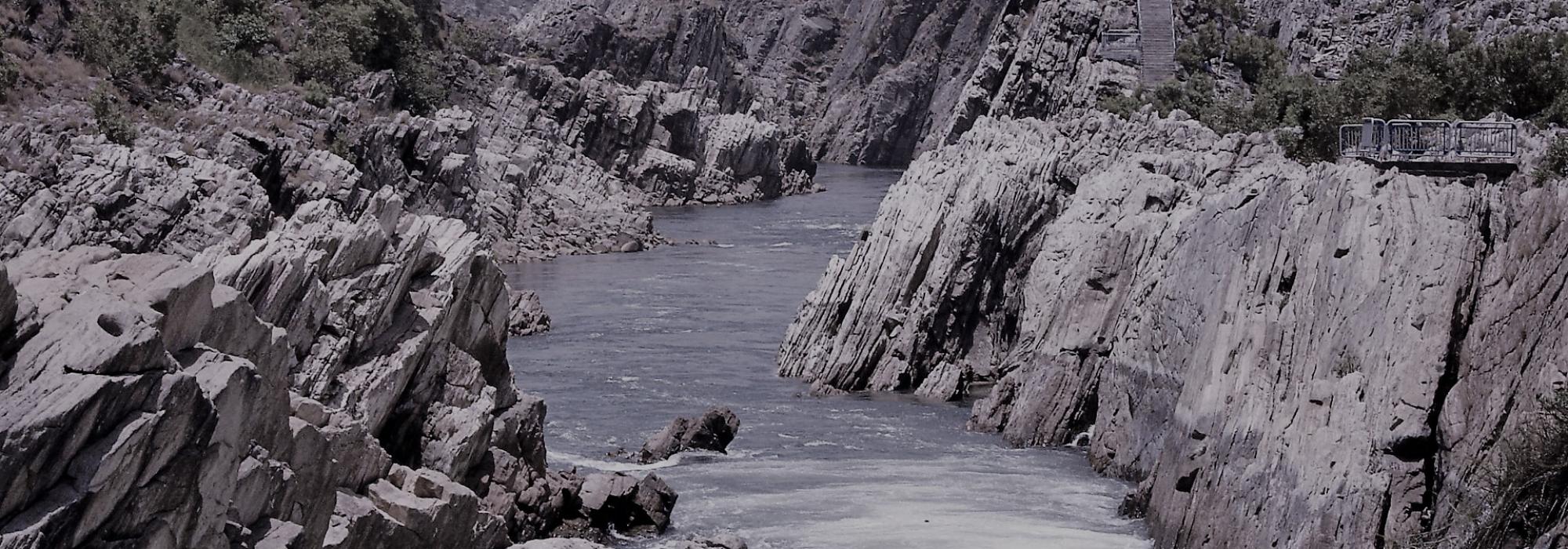There lived a king named Duṣyanta who belonged to the lineage of Puru. He was valorous and was ruling over the earth in a dhārmic manner. There was no varṇa-saṅkara, i.e., mixing of the varṇas in his kingdom. There were no hardships faced for cultivation of crops and for growing food. All citizens got their share of artha and kāma by strict adherence to dharma. No one committed sins. People knew no fear of thieves; they did not even know what hunger felt like and were never tormented by diseases. They were all selfless and spent most of their time in performing their worldly and other-worldly duties. The kingdom had timely rains and the place was filled with all riches and gems.
One day, Duṣyanta set out on a hunting expedition along with his retinue of cavalry – horses and elephants. They armed themselves with different weapons and set out making loud sounds with ānakha and dundubhis. They reached the forest and went from one place to the other hunting for animals. Duṣyanta suddenly spotted a deer, which looked very attractive to him. He followed that to a large distance. He eventually got tired, hungry and thirsty and entered an āśrama of a ṛṣi. The āśrama was pleasant and kindled positive feelings in his mind. There was cool breeze all around. The āśrama was full of trees rich with blossomed flowers and ripe fruits; none of the trees and plants possessed thorns. The grass was green all around. Birds chirped melodiously and trees provided cool shade. There were creepers that grew closely embracing the trees. Bees bumbled around the creepers. The river Mālinī flowed close by and huts of sages were on both its banks. Forest animals seemed to have given up their wild nature in the vicinity of the āśrama.
Duṣyanta stopped his army near the āśrama and told his men – “I shall meet Kaṇva, the tapodhana. All of you should stay here until I am back!” With these words, he got off his chariot and did away with all his royal attire and emblems. He entered the āśrama and found that the sage was not home. He could not spot anyone else and called out – “Who is around here?” Hearing his call, a maiden who looked like an embodiment of the deity of beauty, appeared there. She welcomed him and offered him a seat to sit on. She also provided him with water to drink and refreshments to consume. She enquired after his well-being and asked what he wanted from there. Looking at that lovely damsel who spoke such sweet words with a smiling face, the king said – “I have come here to greet and pay my respects to the revered sage Kaṇva. O dear one, tell me where is he gone?”
Śakuntalā replied – “My father is gone out to fetch fruits and flowers. If you could wait for a while, he should be back. You can meet him!”
The maiden had a divine radiance and youthful charm. Duṣyanta asked her – “Pray tell me, who are you, O beautiful one? Why are you living here in the forest? Where have you come from? I seem to lose my mind even as I speak to you. I wish to know about you. Please do tell me!”
She said, with a smile on her face – “I am the daughter of the sage Kaṇva, the renowned ṛṣi!”
Duṣyanta – “The sage is known to strictly adhere to brahmacarya. He never budges from his oaths. How are you his daughter? Can you please clarify my doubt?”
Śakuntalā – “In the past, a sage asked my father about the story of my birth and my father narrated the following. I will tell you just as I heard it -
‘Viśvāmirta performed a great penance in the past. Indra was scared and agitated. He called Menakā to his side and told her to do something that will stop Viśvāmirta from snatching away his throne as the lord of svarga. She took the help of Vāyu and Manmatha and arrived at the spot where the sage Viśvāmirta was performing tapas. As she was moving about him, the wind loosened her garments. Viśvāmirta who saw her in that state lost his mental composure. He wished to have her. She too consented. As they spent their days in the forest, Menakā begot the child Śakuntalāa. Menakā thought that her task was accomplished and went back, leaving the baby on the banks of the river Mālinī. The baby was protected by birds which warded away the forest animals from the baby. I was in the forest to answer nature’s call, spotted the baby and brought her with me. As she was protected by birds, I named her ‘Śakuntalā’. This is how Śakuntalā became my daughter. She considers me as her own father.’
O king! This is how I became the daughter of Kaṇva. He is my father!”
This is an English translation of Prof. A R Krishna Shastri’s Kannada classic Vacanabhārata by Arjun Bharadwaj and Hari Ravikumar published in a serialized form.
The original Kannada version of Vacanabhārata is available for free online reading here. To read other works of Prof. Krishna Shastri, click here.

















































